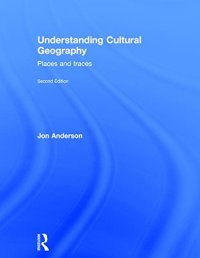
Ebook: Understanding Cultural Geography: Places and traces
Author: Jon Anderson
- Genre: Geography // Local history: Tourism
- Tags: Reference Almanacs Yearbooks Atlases Maps Careers Catalogs Directories Consumer Guides Dictionaries Thesauruses Encyclopedias Subject English as a Second Language Etiquette Foreign Study Genealogy Quotations Survival Emergency Preparedness Test Preparation Words Grammar Writing Research Publishing Geography Historic Information Systems Regional Earth Sciences Science Math Human Social Politics Cultural Anthropology Mathematics New Used Rental Textbooks Specialty Boutique
- Year: 2015
- Publisher: Routledge
- Edition: 2nd
- Language: English
- pdf
Understanding Cultural Geography: Places and Traces offers a comprehensive introduction to perhaps the most exciting and challenging area of human geography. By focusing on the notion of ‘place’ as a key means through which culture and identity is grounded, the book showcases the broad range of theories, methods and practices used within the discipline. This book not only introduces the reader to the rich and complex history of cultural geography, but also the key terms on which the discipline is built. From these insights, the book approaches place as an ‘ongoing composition of traces’, highlighting the dynamic and ever-changing nature of the world around us.
The second edition has been fully revised and updated to incorporate recent literature and up-to-date case studies. It also adopts a new seven section structure, and benefits from the addition of two new chapters: Place and Mobility, and Place and Language. Through its broad coverage of issues such as age, race, scale, nature, capitalism, and the body, the book provides valuable perspectives into the cultural relationships between people and place. Anderson gives critical insights into these important issues, helping us to understand and engage with the various places that make up our lives.
Understanding Cultural Geography is an ideal text for students being introduced to the discipline through either undergraduate or postgraduate degree courses. The book outlines how the theoretical ideas, empirical foci and methodological techniques of cultural geography illuminate and make sense of the places we inhabit and contribute to. This is a timely update on a highly successful text that incorporates a vast foundation of knowledge; an invaluable book for lecturers and students.